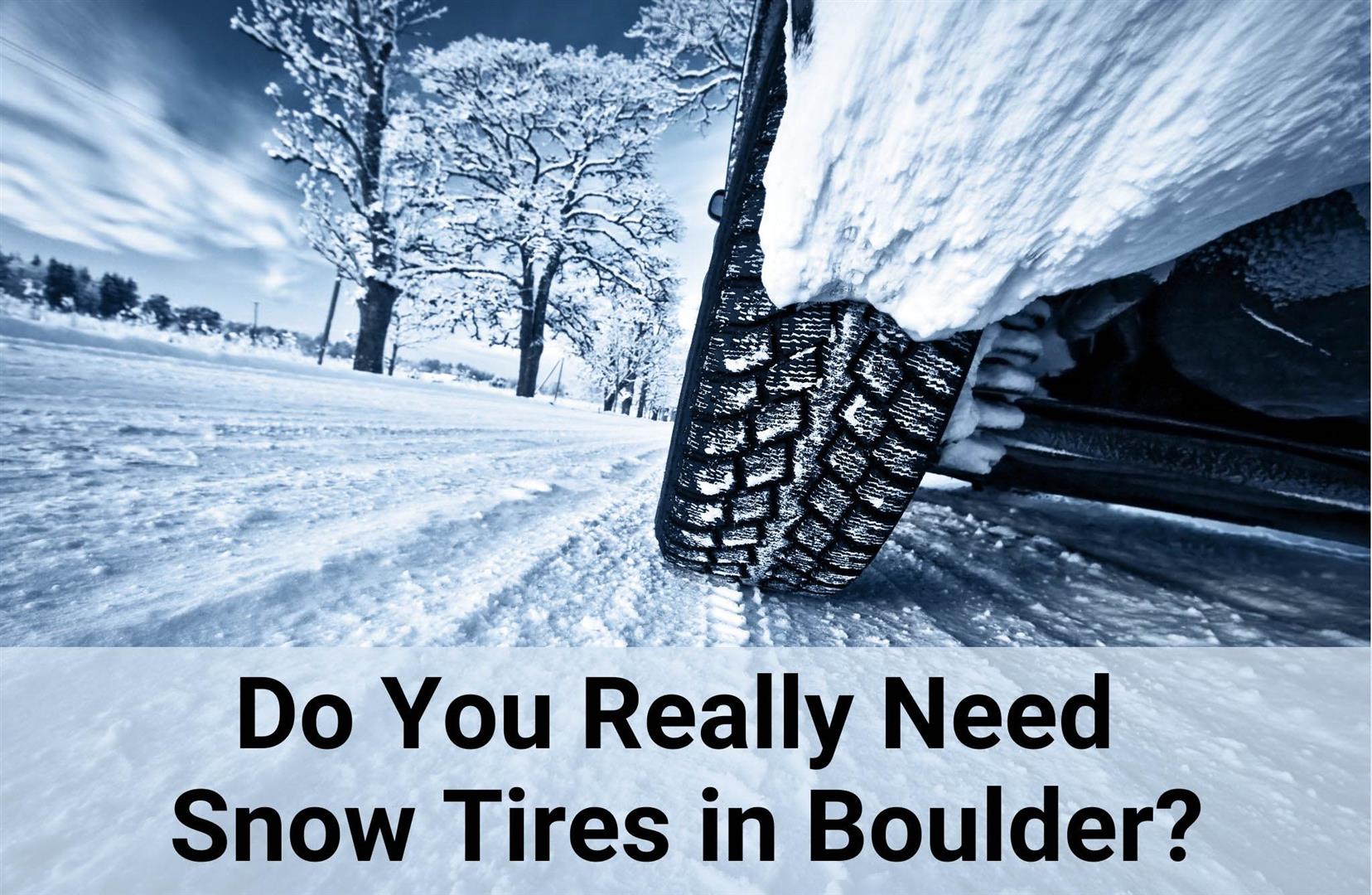
Making the decision to invest in snow tires depends on a few things including where you live, the type of vehicle you drive, if you’ll be frequenting the mountains, and your experience with driving in snow and ice.
Many Boulder residents choose to use all-season tires year-round. Those who live in the foothills, or enjoy trips to the mountains often switch to snow tires during the winter months for added safety. Snow tires provide better traction in snow, on ice and in cold temperatures than all-season or summer tires.
Vehicle Type
While AWD and 4WD on a vehicle can help you in snow drifts, your drivetrain alone won’t do much to keep you from sliding on ice. Your best protection against ice is snow tires or even studded snow tires, if you’ll be doing a lot of mountain driving.
In FWD vehicles, the power from the engine goes to the front wheels. Snow tires on the front wheels provide extra grip which can improve stability and help prevent skidding when driving in winter weather.
For RWD vehicles, adding snow tires to the rear wheels is crucial to prevent fishtailing and loss of control during acceleration.
Driving Conditions
Consider the roads you typically drive on. If you will be doing a lot of driving in mountain conditions this winter, snow tires can provide better traction and handling, giving you more peace of mind.
Your Driving Skills
Your confidence and experience in driving in winter conditions also play a role. While snow tires can help compensate for less experience, it's always best to practice safe winter driving techniques by taking a course or practicing in a parking lot.
If you frequently encounter snowy or icy conditions and want the best possible traction and safety, investing in snow tires is a smart choice.
At the very least to insure your safety on the roads this winter, it’s important to check the tread on your tires.